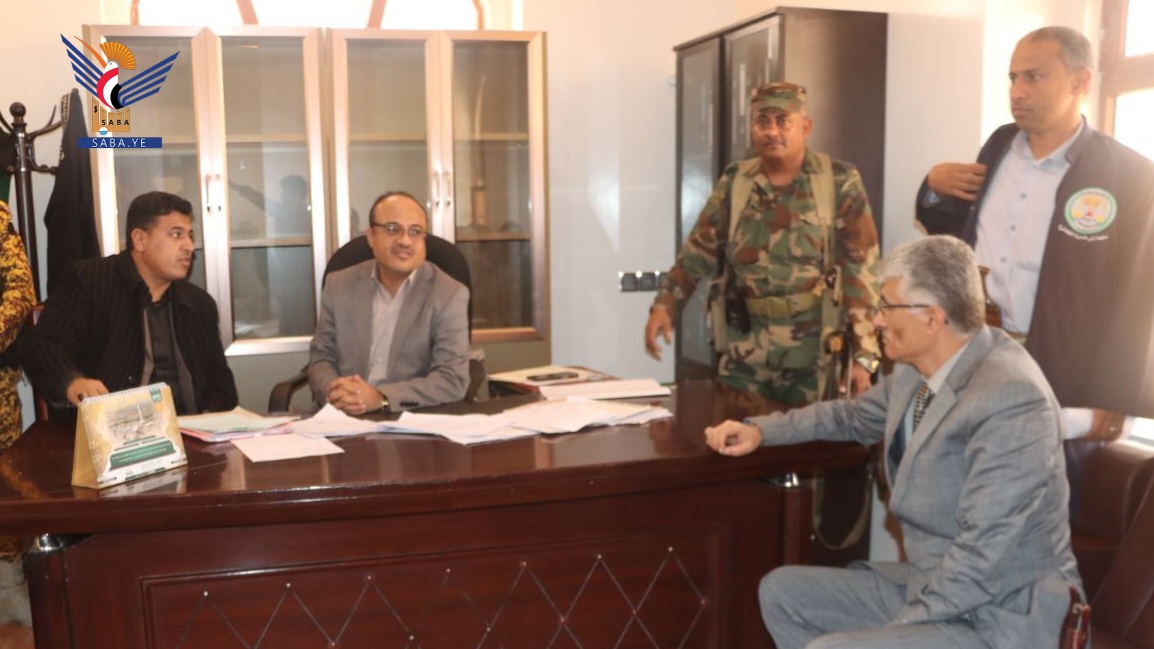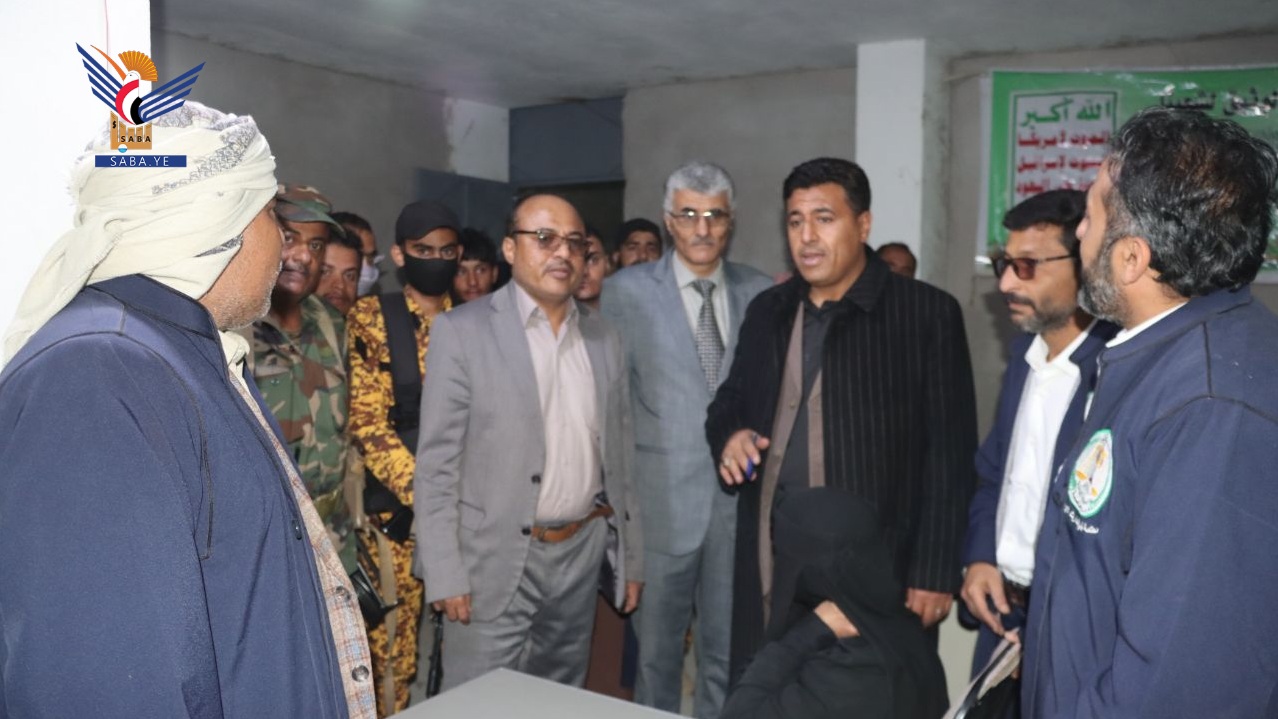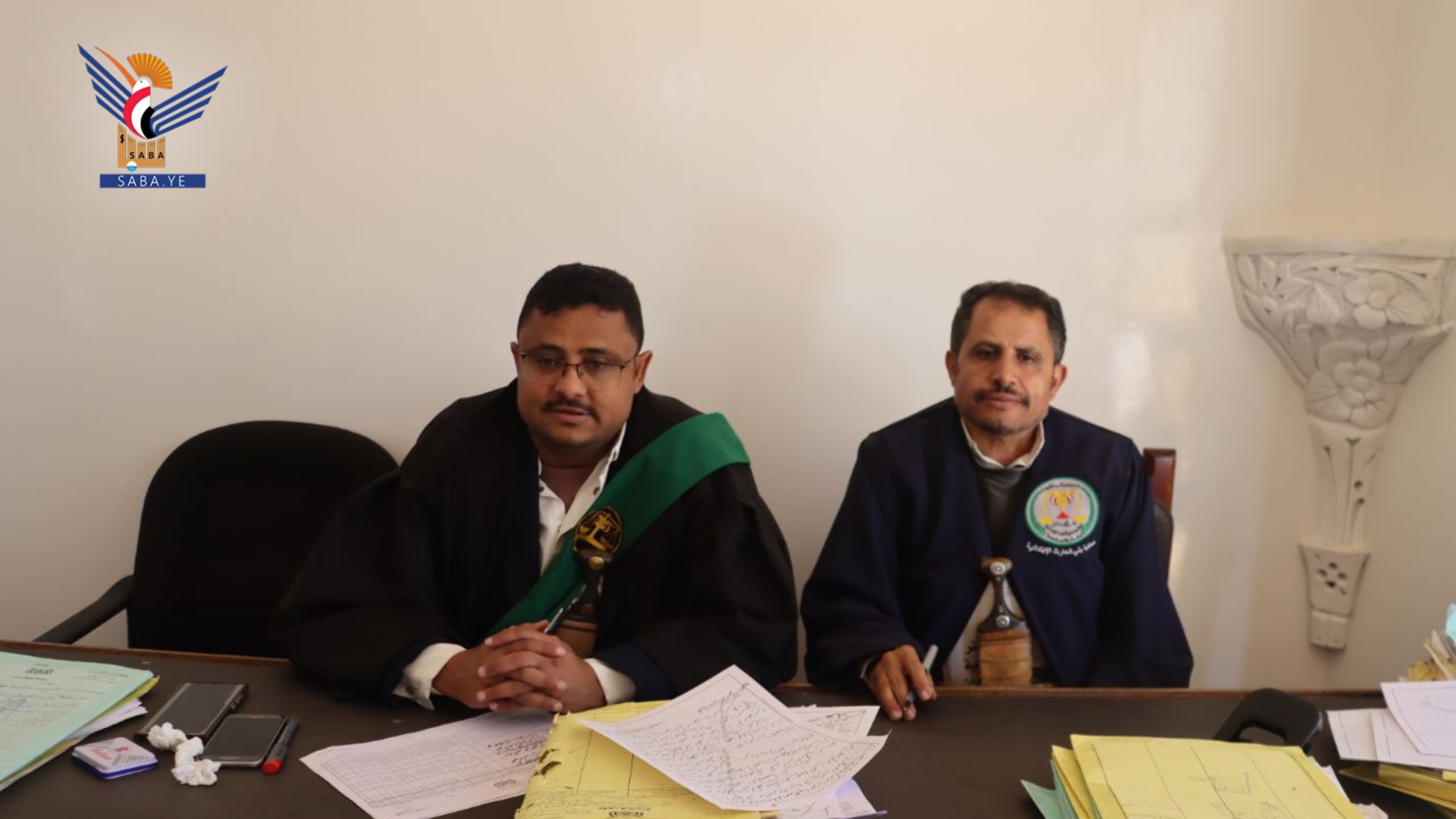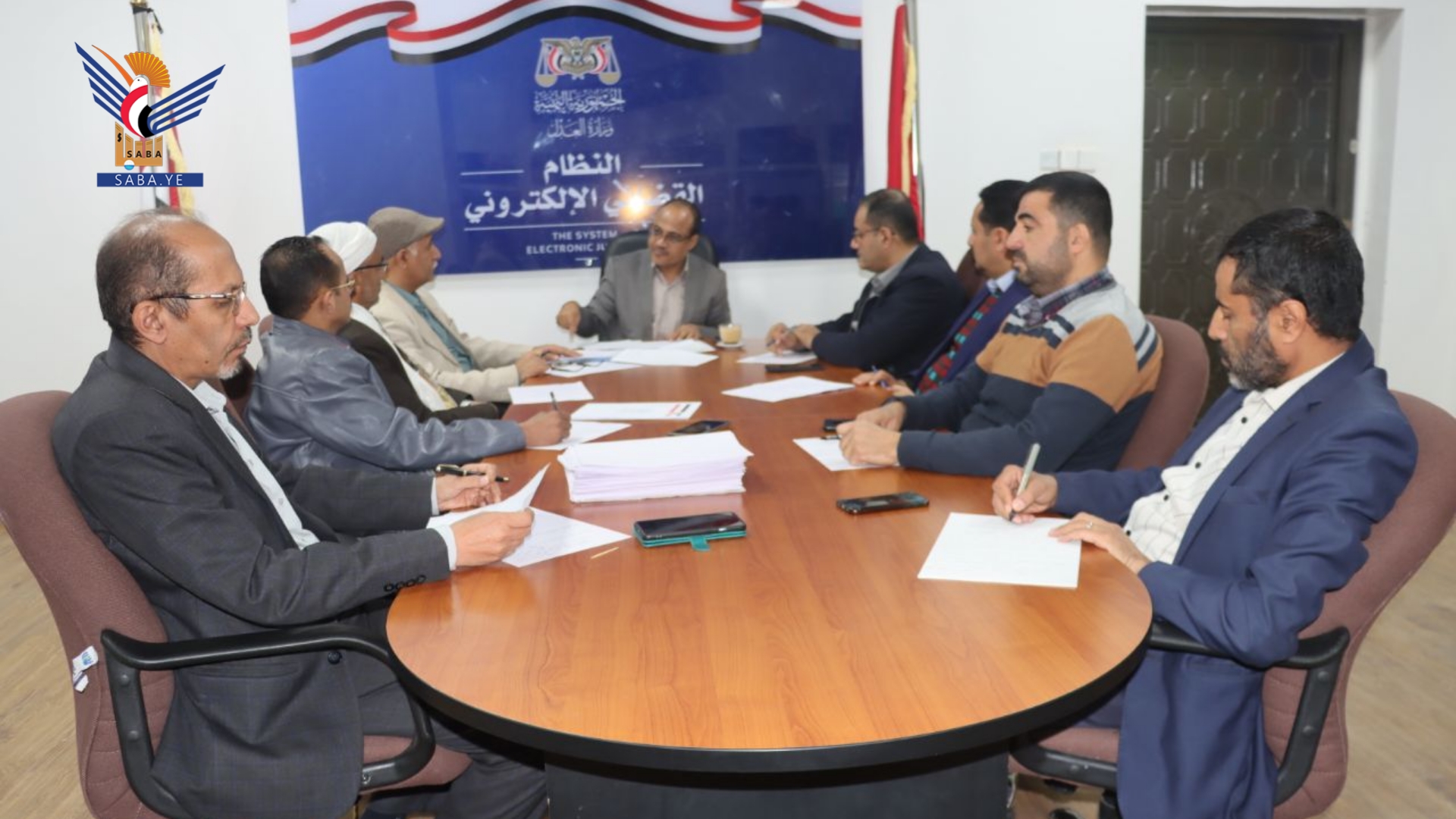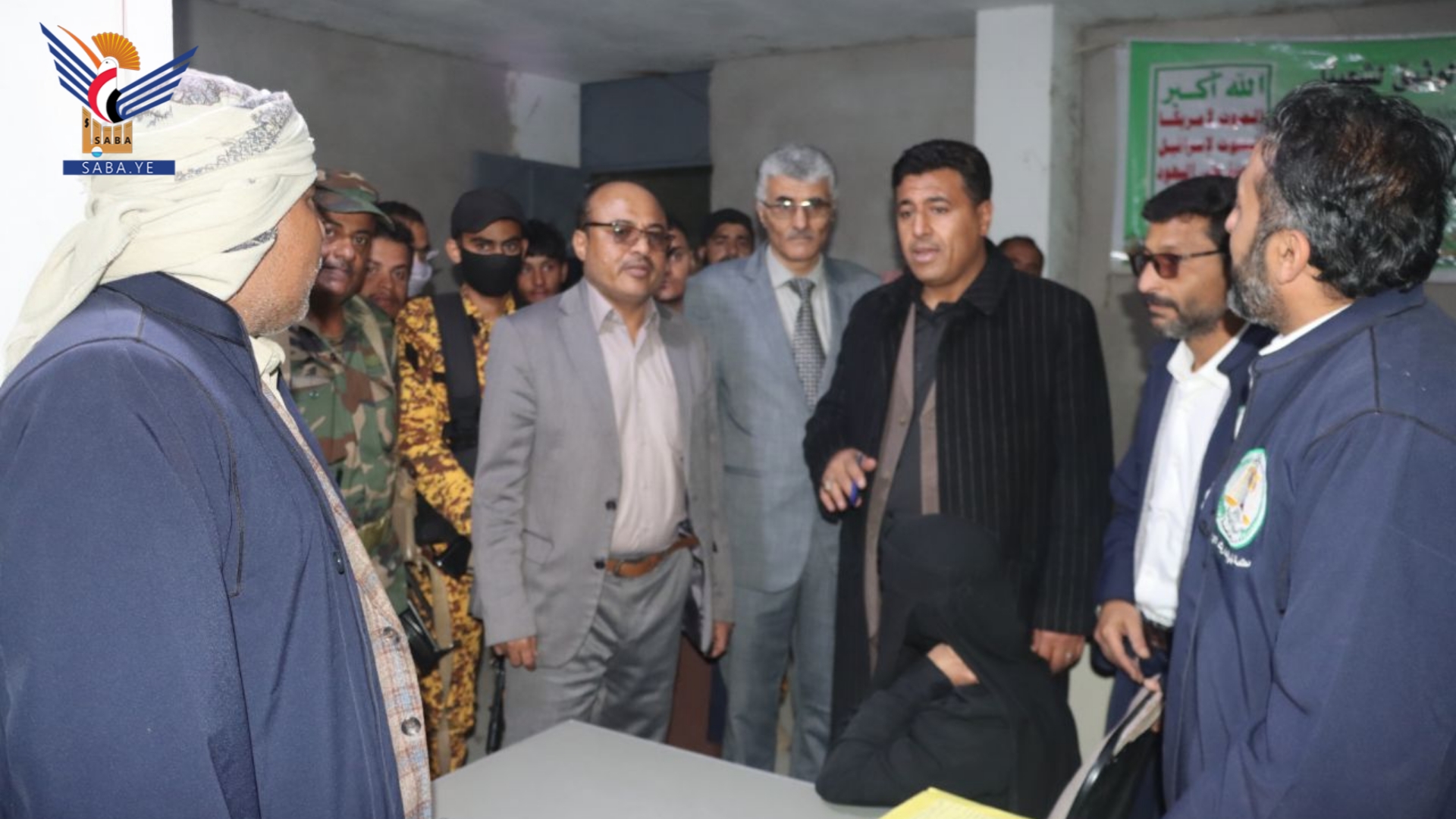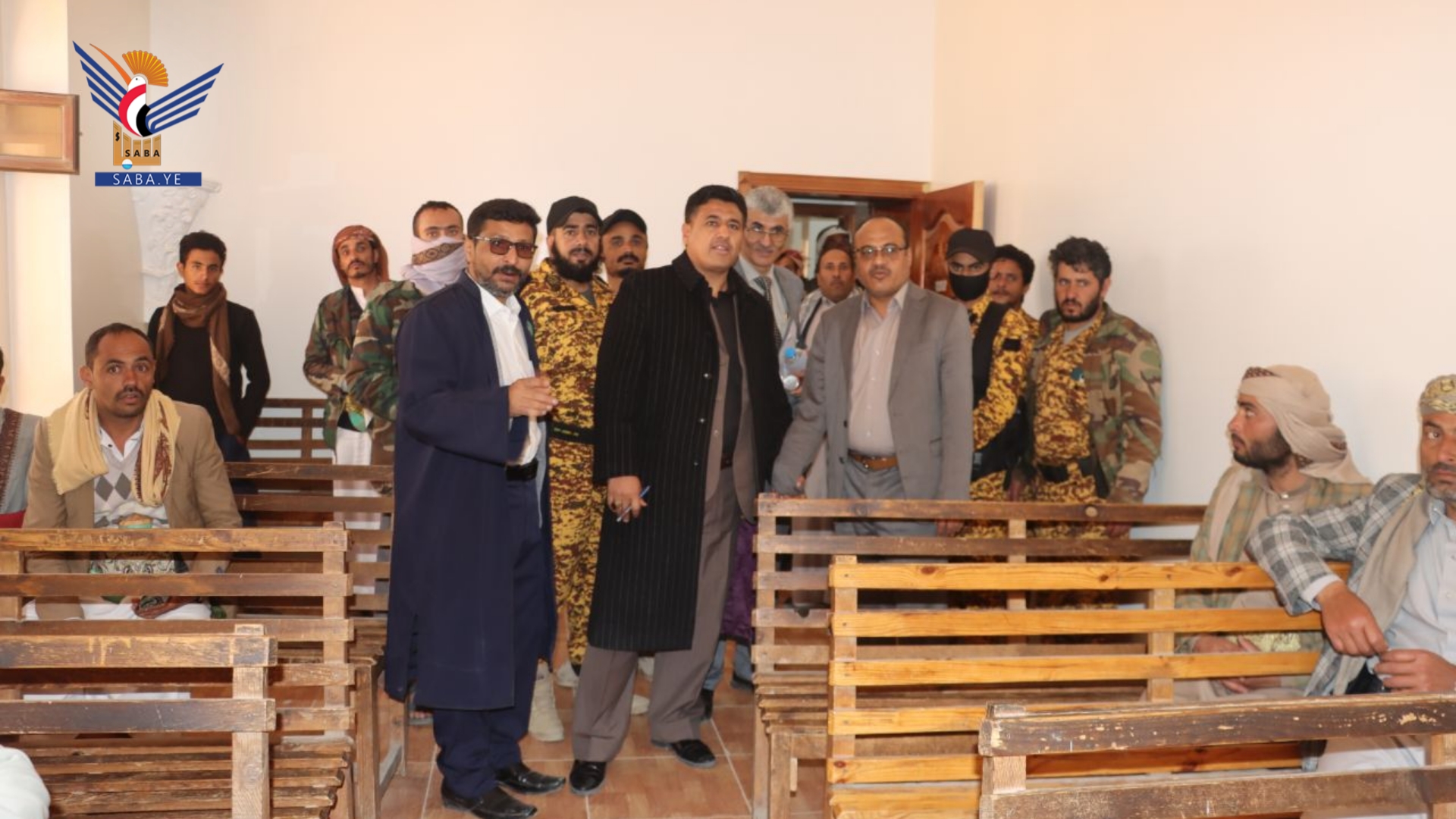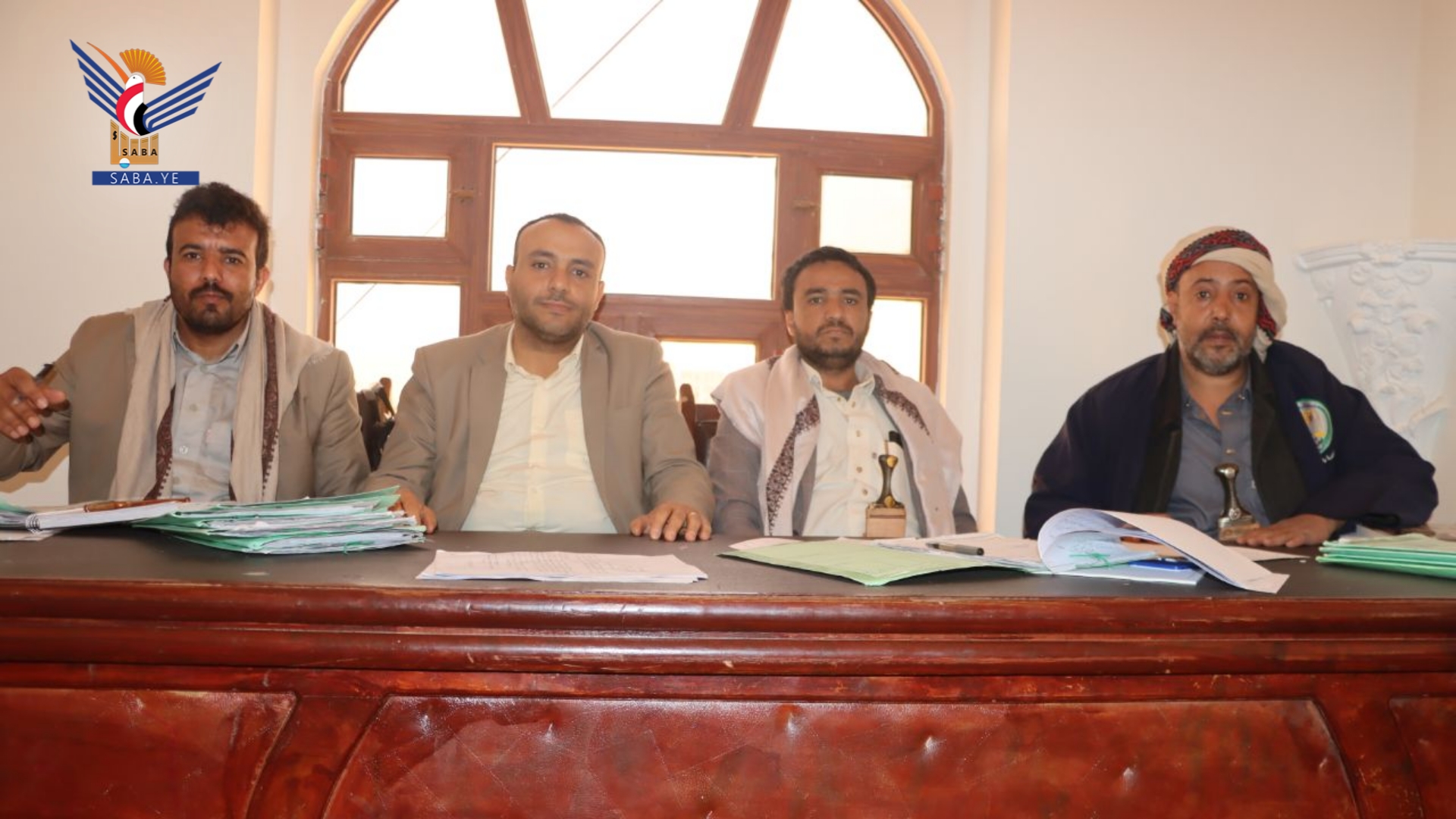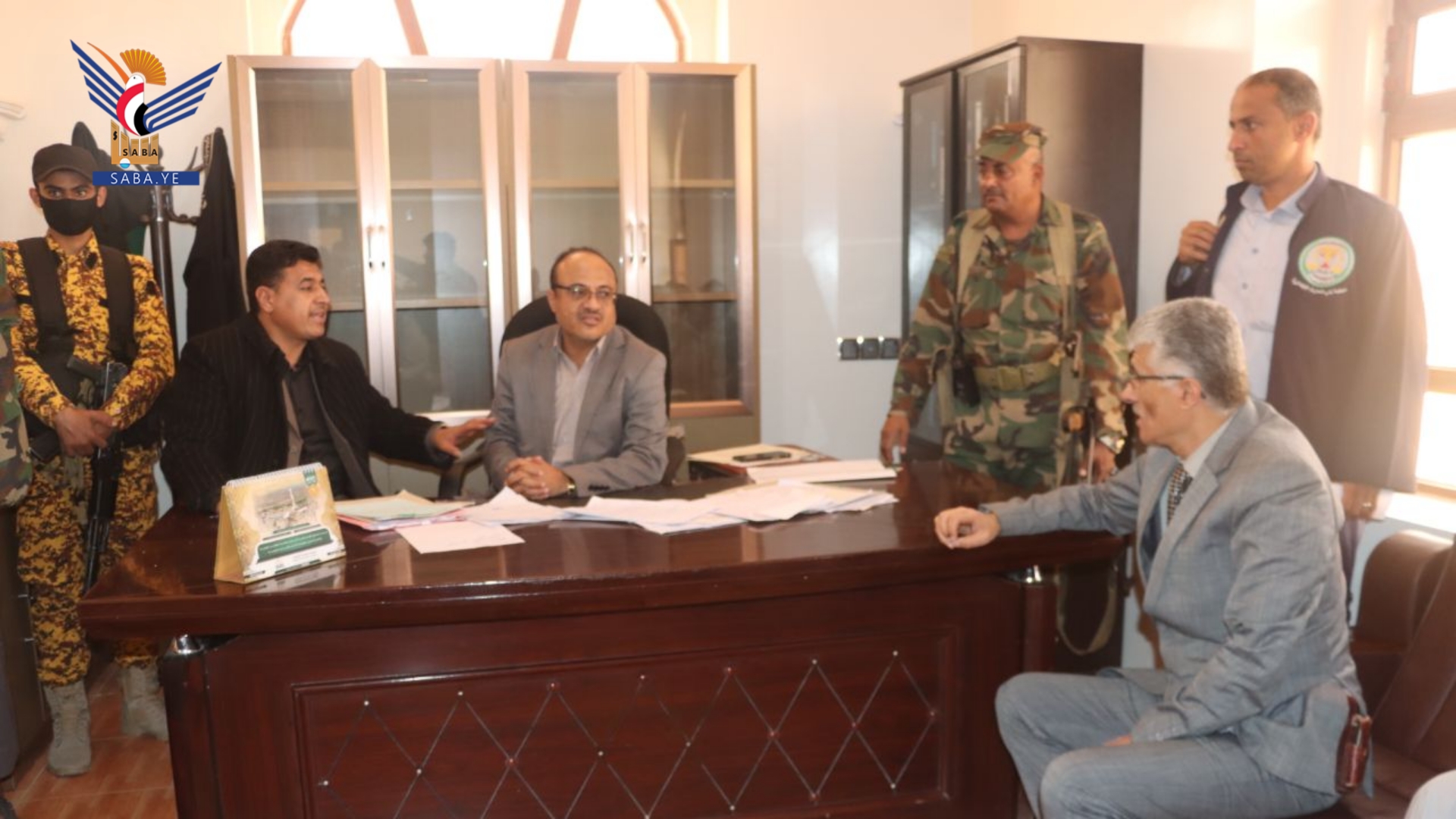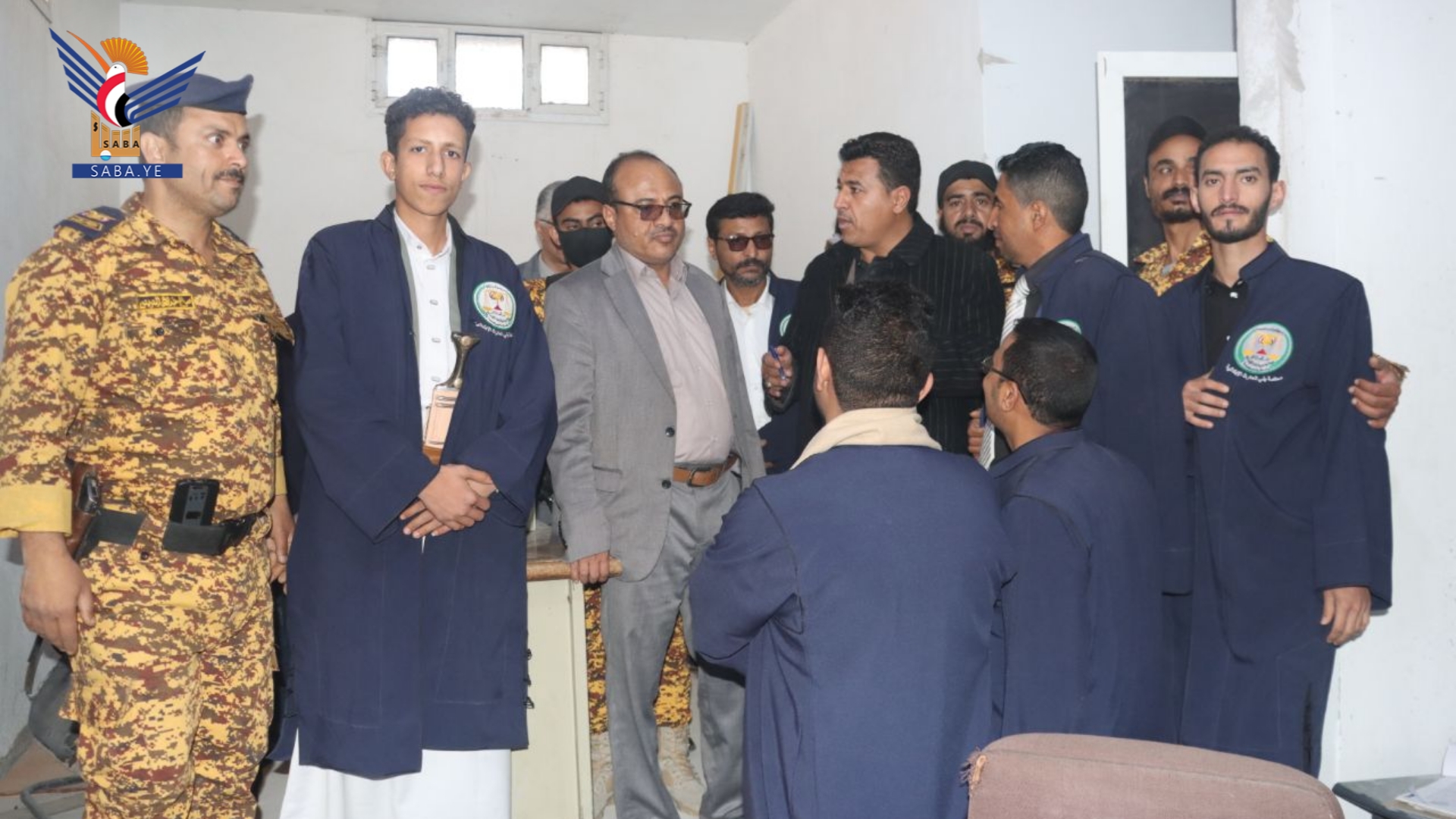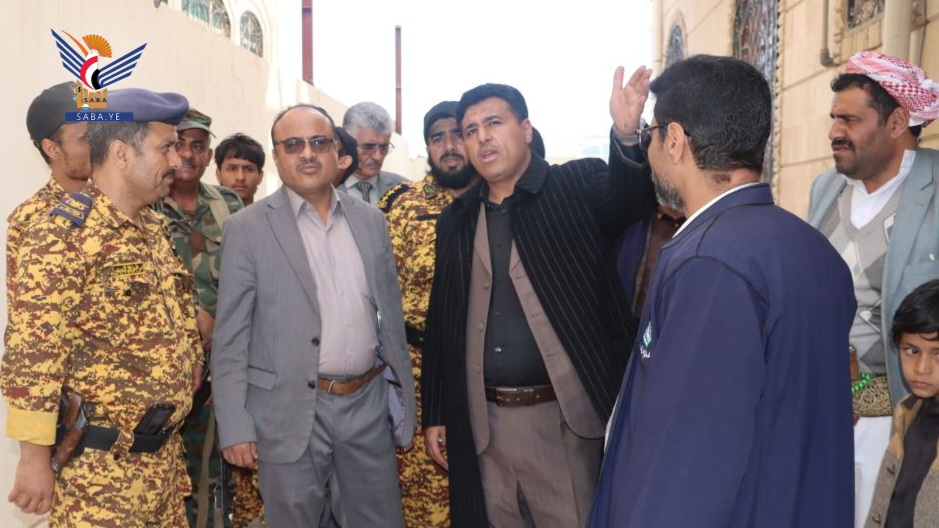
Sana'a - Saba:
Minister of Justice and Human Rights Judge Mujahid Abdullah on Saturday visited Bani al-Harith Primary Court in the capital Sana'a to inspect its workflow.
Accompanied by Judge Ahmed al-Kuhlani, head of the ministry's financial and administrative affairs sector, the minister reviewed the performance, job discipline, and implementation of tasks aimed at establishing justice, preserving rights, and addressing grievances.
During the visit, Judge Mujahid toured the courtrooms and departments, where he was briefed by Judge Yasser al-Amdi, the head of the court, on the volume of cases, the mechanisms for handling them, and the achievements made.
He also learned about the technical and staffing challenges the court faces and discussed potential solutions.
Judge Mujahid praised the court's efforts in completing judicial rulings from 1445 AH and expediting cases from the first half of 1446 AH, especially those involving prisoners.
He urged the judges and employees to continue working diligently to resolve citizens' cases and deliver timely justice.
The minister emphasized the ministry's commitment to addressing the court's challenges by providing necessary resources to improve judicial services and administrative work.
Additionally, the minister confirmed that the ministry would cover the costs of the work teams in line with official circulars and prevent any fees from being imposed on citizens under the guise of "collection fees."
Addressing challenges in judicial work remains a priority for the Ministry of Justice and the Supreme Judicial Council.
Later, the minister held a meeting with the team responsible for implementing the government's urgent priorities plan and judicial reforms.
The meeting reviewed progress on judicial rulings, the automation of judicial processes, and the development of the judicial system.
Judge Mujahid urged the team to intensify their efforts and submit weekly progress reports.
Minister of Justice and Human Rights Judge Mujahid Abdullah on Saturday visited Bani al-Harith Primary Court in the capital Sana'a to inspect its workflow.
Accompanied by Judge Ahmed al-Kuhlani, head of the ministry's financial and administrative affairs sector, the minister reviewed the performance, job discipline, and implementation of tasks aimed at establishing justice, preserving rights, and addressing grievances.
During the visit, Judge Mujahid toured the courtrooms and departments, where he was briefed by Judge Yasser al-Amdi, the head of the court, on the volume of cases, the mechanisms for handling them, and the achievements made.
He also learned about the technical and staffing challenges the court faces and discussed potential solutions.
Judge Mujahid praised the court's efforts in completing judicial rulings from 1445 AH and expediting cases from the first half of 1446 AH, especially those involving prisoners.
He urged the judges and employees to continue working diligently to resolve citizens' cases and deliver timely justice.
The minister emphasized the ministry's commitment to addressing the court's challenges by providing necessary resources to improve judicial services and administrative work.
Additionally, the minister confirmed that the ministry would cover the costs of the work teams in line with official circulars and prevent any fees from being imposed on citizens under the guise of "collection fees."
Addressing challenges in judicial work remains a priority for the Ministry of Justice and the Supreme Judicial Council.
Later, the minister held a meeting with the team responsible for implementing the government's urgent priorities plan and judicial reforms.
The meeting reviewed progress on judicial rulings, the automation of judicial processes, and the development of the judicial system.
Judge Mujahid urged the team to intensify their efforts and submit weekly progress reports.
